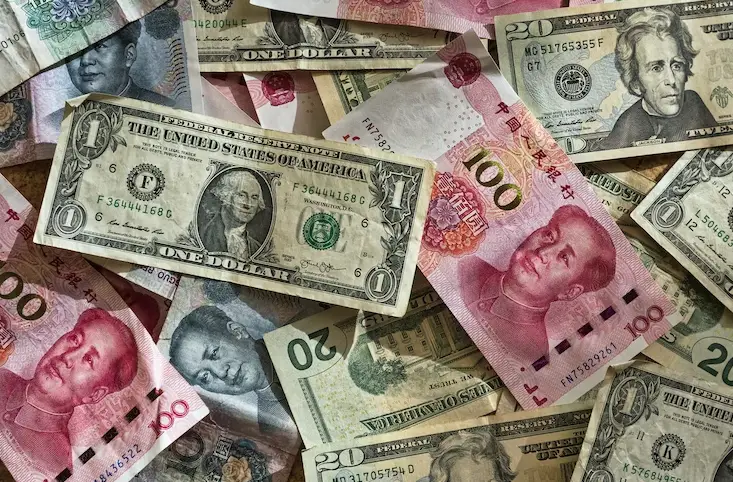According to the newest data released by the International Monetary Fund (IMF), the US dollars share of global bank reserves has continued to decrease, plummeting to 59.2% for the third quarter of 2023. The decline is seen as a result of an increasing trend of de-dollarization spreading across the world.
The decline is significant, compared to the 70% share the dollar held in 2000. It still remains the world’s primary reserve currency, with the euro coming in second, although its share has also declined to 19.6%. The Japanese yen’s share of world reserves increased to 5.5%, from 5.3% in the previous quarter. The Chinese yuan, the British pound, the Canadian dollar, and the Swiss franc all more or less held their positions.
At the same time, the yuan’s share of international payments reached a record high for November as the renminbi rose to become the fourth most used currency in the world, according to data from global financial messaging service SWIFT. Cross-border lending of yuan increased also, as the People’s Bank of China maintains more than 30 bilateral currency swaps with foreign central banks, from Saudi Arabia to Argentina.
SWIFT noted that the increasing usage of the yuan to settle cross-border transactions is a byproduct of China’s growing shift away from the dollar, as well as the efforts of Beijing to promote the use of its currency as a means of settlement of cross-border trade obligations.
There has been a growing trend in the world to shift away from the use of the dollar to settle cross-border trade obligations which began early last year. It followed attempts by the West to punish Russia for the war in Ukraine by shutting Russian banks out of Western financial systems, so as to prevent Russia from using the dollar or the euro as a reserve currency, thereby impacting its ability to conduct trade internationally. In addition, the dollars and euros which Russia had stored with Western financial institutions were frozen by the West, which is presently looking for a way to legally seize them and transfer them to Ukraine.
As a result, Russia was forced to explore alternative means of trade settlement, often utilizing the yuan or local currencies. Other nations which used the dollar as a reserve currency, became afraid that being swept up in some geopolitical drama could cause the West to shut them out of its financial systems for political reasons, thus blocking them from engaging in international trade. In response, they began to look at diversifying their means of trade settlement, often looking to the yuan or the option of using local currencies.
The European Bank of Reconstruction (EBRD) has warned that the growing use of the Chinese yuan by Russia in its international trade agreements could possibly erode the strength of the US dollar. In addition, trade restrictions being imposed by the West could lead to an increasing usage of the yuan globally, further eroding the dominance and the strength of the dollar.


